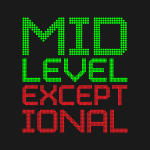Battle Lines Being Drawn Between Adam Silver, Michele Roberts
Hoping for NBA labor peace in 2017? This wasn’t your finest week, if so.
In an interview with ESPN The Magazine‘s Pablo S. Torre published online Thursday, new NBA Players’ Association executive director Michele Roberts expressed her dismay at a number of facets in the current collective bargaining agreement. She took aim at maximum salaries, the rookie-salary scale, and, perhaps the most eyebrow-raising of all, the salary cap as a whole.
PT: So what are your thoughts on the notion of a salary cap?
MR: My world was such that you made as much as you could, frankly. No partner I ever knew went into a comp meeting and said, I know I’m worth X, but yeah, that’s fine, I’ll take X minus 10. I don’t know of any space other than the world of sports where there’s this notion that we will artificially deflate what someone’s able to make, just because. It’s incredibly un-American. My DNA is offended by it.
NBA Commissioner Adam Silver issued a swift rebuttal to Roberts’ comments on Thursday, essentially making the idea of abolishing the salary cap a non-starter:
We couldn’t disagree more with these statements. The NBA’s success is based on the collective efforts and investments of all of the team owners, the thousands of employees at our teams and arenas, and our extraordinarily talented players. No single group could accomplish this on its own. Nor is there anything unusual or ‘un-American’ in a unionized industry to have a collective system for paying employees – in fact, that’s the norm.
The Salary Cap system, which splits revenues between team owners and players and has been agreed upon by the NBA and the Players Association since 1982, has served as a foundation for the growth of the league and has enabled NBA players to become the highest paid professional athletes in the world. We will address all of these topics and others with the Players Association at the appropriate time.
Roberts also bristled at a question about the split of basketball related income between players and owners, which doesn’t exactly bode well for labor peace in 2017.
PT: There’s a public-perception argument out there that 50-50 sounds fair. Players and owners sharing equally. What do you make of that notion?
MR: Why don’t we have the owners play half the games? There would be no money if not for the players. Let’s call it what it is. There. Would. Be. No. Money. If not for the players. They create the game. Thirty more owners can come in and nothing will change. These guys go? The game will change. So let’s stop pretending. We are responsible for the success of the game. That’s my answer.
Under the current collective bargaining agreement, players are entitled to anywhere between 49 percent and 51 percent of the basketball related income generated that year, depending on whether the forecasted BRI exceeds or falls short of the actual BRI. The previous CBA, which was ratified in 2005, guaranteed players 57 percent of BRI generated each year.
With the league soon to be rolling in a truckload of new national television money and franchise valuations skyrocketing, Roberts made clear to Torre that the union would not take kindly to Silver and team owners crying poor. That tactic worked during the 2011 negotiations, as 22 of 30 teams claimed to have lost money—$300 million overall—in the 2010-11 season.
Bleacher Report’s Howard Beck questioned whether Roberts’ approach was a wise one as the two sides gear up for what’s setting up to be another contentious battle:
It’s also fair to wonder whether this is the best strategy this early in the game. Relations between the union and the league were strained in the past in part because of the abrasive relationship between Hunter and commissioner David Stern.
With Roberts and Adam Silver now in those roles, the two sides have the opportunity to start fresh, with a more collegial and constructive approach to this economic partnership. There are parties on both sides of the divide that hope to see that take place.
Roberts’ fiery rhetoric, after two months on the job, seems to be more of an extension of Hunter’s street fighter style.
Others, like Basketball Insiders’ Nate Duncan, saw little downside to Roberts’ fiery rhetoric:
Frankly, it’s too early to know whether Roberts’ hard-line stance is just a way to fire up her constituency or if it speaks to deeper issues she and the union have with the CBA. If it’s the latter, a lockout in 2017 appears all but inevitable.


